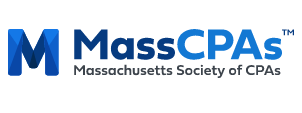Most small businesses do not go bankrupt because business is not good. As a rule, it’s because the focus of the business owner is out front where the action is and not in the back where the real action is.

Most small businesses do not go bankrupt because business is not good. As a rule, it’s because the focus of the business owner is out front where the action is and not in the back where the real action is.
Business owners are focused on selling and not accounting or internal controls. They don’t need internal controls because they know their employees; they trust their employees.
This presentation is an overview of why trusted employees steal; the many ways they steal; how to detect the fraud when it occurs and most importantly, how to prevent the theft in the first place.
Highlights:
Auditing
Fraud
The Massachusetts Society of Certified Public Accountants is the state’s premiere professional organization with more than 11,000 members in public accounting, industry and business, government and education.
© 2025 coursetakers.com All Rights Reserved. Terms and Conditions of use | Privacy Policy